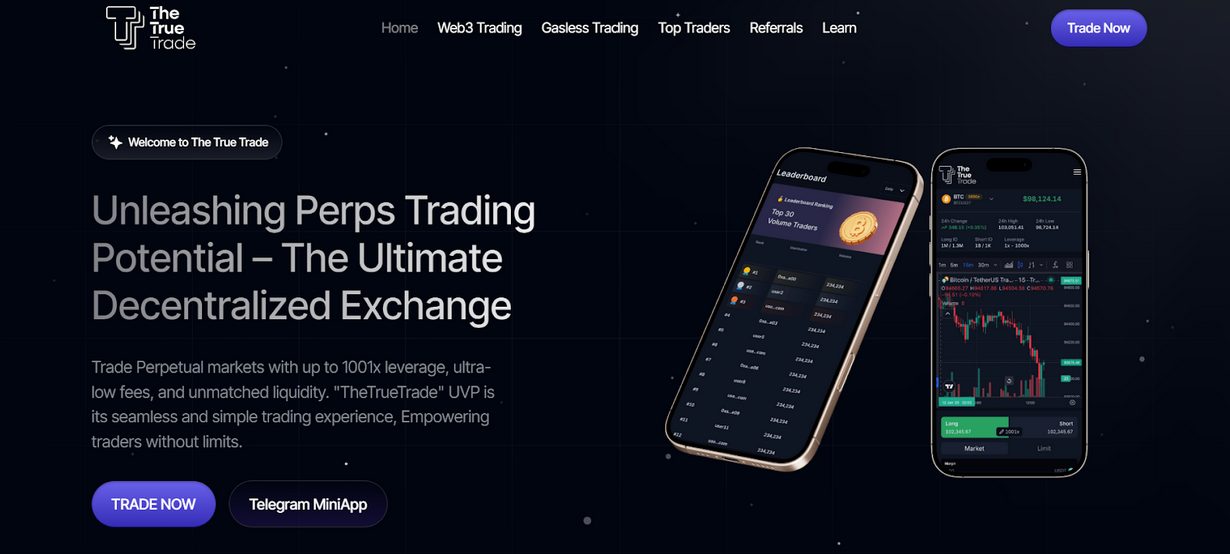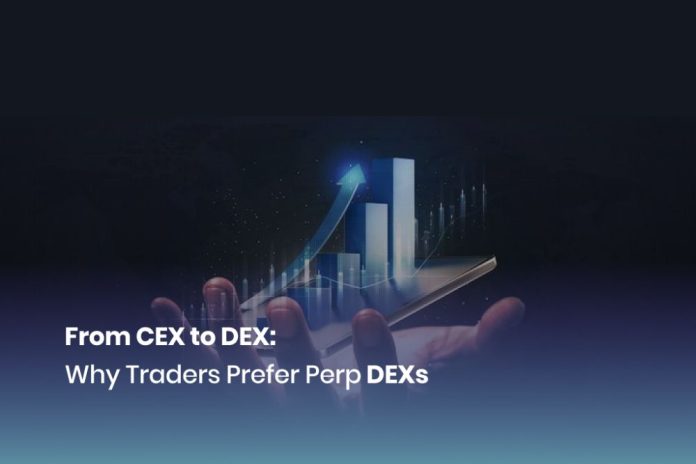Traders have relied on centralized exchanges (CEXs) for crypto trading for years. They seemed like the most straightforward option—until they weren’t. Account freezes, security breaches, and strict KYC policies have left many wondering if they own their assets. The collapse of platforms has only made things worse, proving that trusting a middleman can be a costly mistake.
This has led to a growing shift toward decentralized perpetual exchanges (Perp DEXs), where traders have complete control over their funds, access to deep liquidity, and high-leverage trading without restrictions. Perp DEXs are shaping the future of on-chain perpetual trading on the BNB Chain without withdrawal limits, excessive fees, or third-party interference.
Understanding Perpetual Trading in DeFi
Trading in crypto has developed far beyond simple spot transactions. Perpetual trading has changed the game, allowing traders to take long or short positions without an expiration date. This means they can hold positions as long as their margin allows, offering flexibility that traditional markets can’t match.
Unlike centralized platforms, where users must deposit funds and trust a third party, decentralized perpetual exchanges (Perp DEXs) let traders keep their assets in non-custodial wallets. There are no withdrawal limits or frozen accounts—just full control over funds. And since there’s no KYC verification, getting started takes seconds.
Beyond security and accessibility, cost is another major factor. Minimal trading fees make on-chain perpetual trading more profitable, and with some platforms offering gasless trading, even high-volume perpetual trades can be executed efficiently on the BNB Chain.
For traders looking to maximize their strategies, high-leverage options open up bigger opportunities. As open interest in perp markets continues to grow, it’s clear that decentralized trading is shaping the future of crypto markets.
The True Trade – A Leading Perp DEX Revolutionizing Trading
As decentralized perpetual trading becomes the preferred choice for crypto traders, The True Trade (TTT) is emerging as a leading Perp DEX on the BNB Chain. Unlike other platforms that claim to be decentralized but impose restrictions, TTT is fully on-chain, ensuring users maintain complete control over their funds.
What Makes The True Trade Different?
- Gasless Trading: Traders can execute transactions without needing BNB for gas fees, making high-volume perpetual trades more efficient.
- KYC-Free Access: No lengthy sign-ups, no verification processes—just connect your non-custodial wallet and start trading.
- 1001x Leverage – Designed for traders who want flexibility, TTT offers high-leverage options for strategic risk management.
- Minimal Trading Fees: Unlike CEXs, which charge hidden fees, TTT keeps costs low, ensuring more profit per trade.
- Full Custody & On-Chain Transparency: Users retain full ownership of funds, and all transactions are fully verifiable on-chain, ensuring a trustless and decentralized trading experience.
- Daily Trading Volume – With its high open interest and daily trading volume, TTT is making waves on BNB Chain, reporting over $70 million in daily trading volume and processing more than 50,000 transactions every day.
- Expanding Market Listings – TTT has recently listed the Perp market for $TRUMP and continues to support various memecoin markets, TTT is expanding and listing new markets everyday to support more trading pairs for its users.

TTT sets a new standard for Perp DEXs on the BNB Chain by combining cost efficiency, deep liquidity, and real decentralization.
Why Traders Are Moving from CEXs to Perp DEXs
Centralized exchanges (CEXs) were the easiest way to trade crypto for a long time. But recent events have exposed their risks—frozen withdrawals, security breaches, and sudden shutdowns have cost traders billions. If an exchange fails, users often lose access to their funds with little to no recourse.
This is why perpetual decentralized exchanges (Perp DEXs) are gaining traction. Unlike CEXs, they allow traders to keep full custody of their funds, eliminating the risk of frozen accounts. Since trades happen directly from a non-custodial wallet, there are no withdrawal limits and no third-party control over assets.
Costs are another major factor. CEXs charge hidden withdrawal fees and high trading costs, cutting into profits. In contrast, many on-chain perpetual trading platforms offer lower fees and even gasless transactions on the BNB Chain, making them a more efficient choice.
With traders prioritizing security, transparency, and control, the shift toward decentralized perpetual trading is already happening. As more liquidity moves on-chain, Perp DEXs are the smarter alternative.
What Makes Perp DEXs Different?
Traders aren’t just leaving CEXs because of risks—they’re choosing Perp DEXs because they offer more control and a better trading experience. Here’s what sets them apart:
- You control your funds – On a Perp DEX, your assets stay in your non-custodial wallet. No deposit requirements and no withdrawal limits—you always own your crypto.
- No KYC, no delays – Forget handing over personal documents or waiting for approvals. Perp DEXs lets you trade instantly with just a wallet connection.
- Lower costs—Trading fees are minimal without a centralized operator. Some platforms even offer gasless trading, cutting costs even further.
- Leverage without restrictions – Want to trade bigger positions? High-leverage options, including 1001x leverage, allow traders to adjust their risk as they see fit.
- Full transparency – Unlike CEXs, on-chain perpetual trading means every transaction is public and verifiable, ensuring a trustless trading experience.
Final Thoughts
Crypto trading is shifting, and it’s no longer just about convenience—it’s about control. Traders are moving away from CEXs because they’ve seen the risks firsthand. Losing access to funds, dealing with high fees, and relying on third parties have become a growing concern.
Perp DEXs offer a different path. They give traders direct access to markets, allowing them to trade without restrictions, intermediaries, or hidden conditions. This shift isn’t just about avoiding problems—it’s about creating a more open, transparent, and fair way to trade.
As more liquidity moves on-chain, one thing is clear: decentralized perpetual trading isn’t just an alternative—it’s becoming the standard.
Disclaimer: This content is meant to inform and should not be considered financial advice. The views expressed in this article may include the author’s personal opinions and do not represent Times Tabloid’s opinion. Readers are urged to do in-depth research before making any investment decisions. Any action taken by the reader is strictly at their own risk. Times Tabloid is not responsible for any financial losses.



